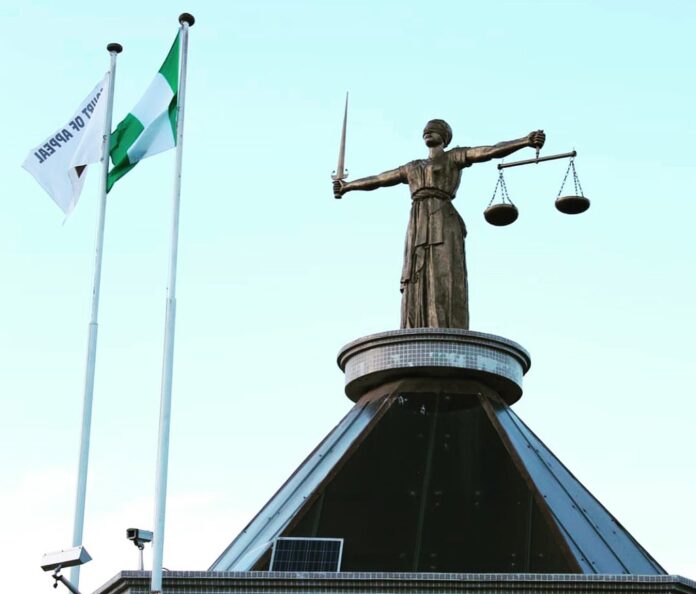In a groundbreaking move aimed at bolstering local governance, councils across Nigeria are set to begin receiving direct allocations from the Federation Account next month. This marks a significant step toward achieving the financial autonomy promised by the July 11, 2024, Supreme Court judgment, which has been the subject of ongoing efforts by the federal government to ensure its full implementation.
Direct Payment Set to Begin in January 2025
According to an official source within the Inter-Ministerial Committee tasked with overseeing the enforcement of the Supreme Court’s ruling, the direct payment will commence with the disbursement of this month’s allocation in January 2025. “Although a few councils have already started receiving their allocations directly, all of the 774 Local Government Areas (LGAs) will begin receiving their allocations directly from the Federation Account next month,” the source said.
This direct payment will bring to an end the long-standing practice of channeling local government funds through state joint accounts, a system which critics argue has stifled the autonomy of local governments and hindered their ability to serve the people effectively. The move is seen as crucial in empowering councils to fulfill their constitutional duties without undue interference from state governors.
A Long-Awaited Reform
The Supreme Court ruling in July 2024 mandated that local governments be granted financial autonomy, meaning they would no longer have to rely on state governments to access their rightful share of the Federation Account. While some states have already begun the process of allowing councils to receive direct funding, the new system will be fully operational across the country starting next month.
Despite the ruling, the journey to full implementation has been far from smooth. Governors in several states have shown resistance, fearing the loss of control over local government finances. Some states, like Anambra, have attempted to pass legislation requiring local councils to contribute a portion of their allocations to a state-controlled joint account. Governor Chukwuma Soludo of Anambra defended the move as necessary for transparency, but critics argue that it undermines the spirit of the Supreme Court judgment.
In contrast, other states, such as Nasarawa, have fully embraced the ruling, abolishing joint accounts and ensuring compliance with the judgment. Governor Abdullahi Sule of Nasarawa signed a bill into law that supports local government autonomy and the direct payment of allocations, making it clear that his administration is committed to upholding the Supreme Court’s decision.
Challenges Ahead for Local Governments
While the direct disbursement of funds is seen as a victory for local governments, challenges remain in ensuring the proper use of the funds. The move has raised questions about how council chairmen and other elected officials will manage the influx of resources, especially given Nigeria’s history of financial mismanagement at various levels of government.
A former National President of the Association of Local Governments of Nigeria (ALGON), Aminu Muazu Maifata, has offered guidance to the new local government chairmen. “I expect them to work towards improving the lives of the people at the grassroots,” he said, adding that the resources should be used to tackle pressing issues like insecurity, water shortages, and infrastructure development in rural areas.
Maifata, who previously served as the chairman of Lafia Local Government in Nasarawa State, emphasized the need for strong governance at the local level. He urged the new chairmen to focus on capacity building for both the executive and legislative arms of local governments, ensuring that officials are well-equipped to manage resources and implement key development projects.
“I expect them to bring in skillful resource persons who can speak on issues that will strengthen local government administration,” Maifata said. He also noted that ALGON had already created a framework for local government chairmen to follow in utilizing their new financial autonomy effectively.
Federal Government’s Support for Local Government Autonomy
The Nigerian government has shown strong support for the implementation of the Supreme Court judgment. President Bola Ahmed Tinubu has repeatedly affirmed his commitment to local government autonomy, and the Inter-Ministerial Committee, led by the Secretary to the Government of the Federation (SGF), George Akume, has been actively working to ensure that the process proceeds smoothly.
One of the committee’s key objectives is to prevent governors from undermining the autonomy of local governments. “Our committee will reconvene in January to review progress and finalize measures before the Accountant-General of the Federation issues authorization for the complete rollout,” the source within the committee explained. The committee is also expected to address any actions by state governors who may attempt to subvert the Supreme Court ruling.
Attorney-General of the Federation and Minister of Justice, Lateef Fagbemi, has been outspoken in his defense of local government autonomy. He has threatened legal action against governors who fail to comply with the ruling, warning that contempt proceedings could be initiated against them. “Local government autonomy is meant to empower the grassroots, not enrich individuals,” Fagbemi said. “Any chairman found guilty of diverting funds will face severe legal consequences.”
A Step Toward Grassroots Empowerment
The move to grant local governments direct access to their allocations is seen as a major victory for democratic governance in Nigeria. With local governments now able to manage their own resources, it is hoped that they will be better positioned to address the needs of their communities and drive development from the grassroots level.
The Senate has also weighed in on the issue, advocating for a constitutional amendment to clarify the provisions of Section 162(6) of the 1999 Constitution, which governs the creation of state/local government joint accounts. Senate President Godswill Akpabio has emphasized the need for a clear framework to ensure the effective implementation of local government autonomy.

